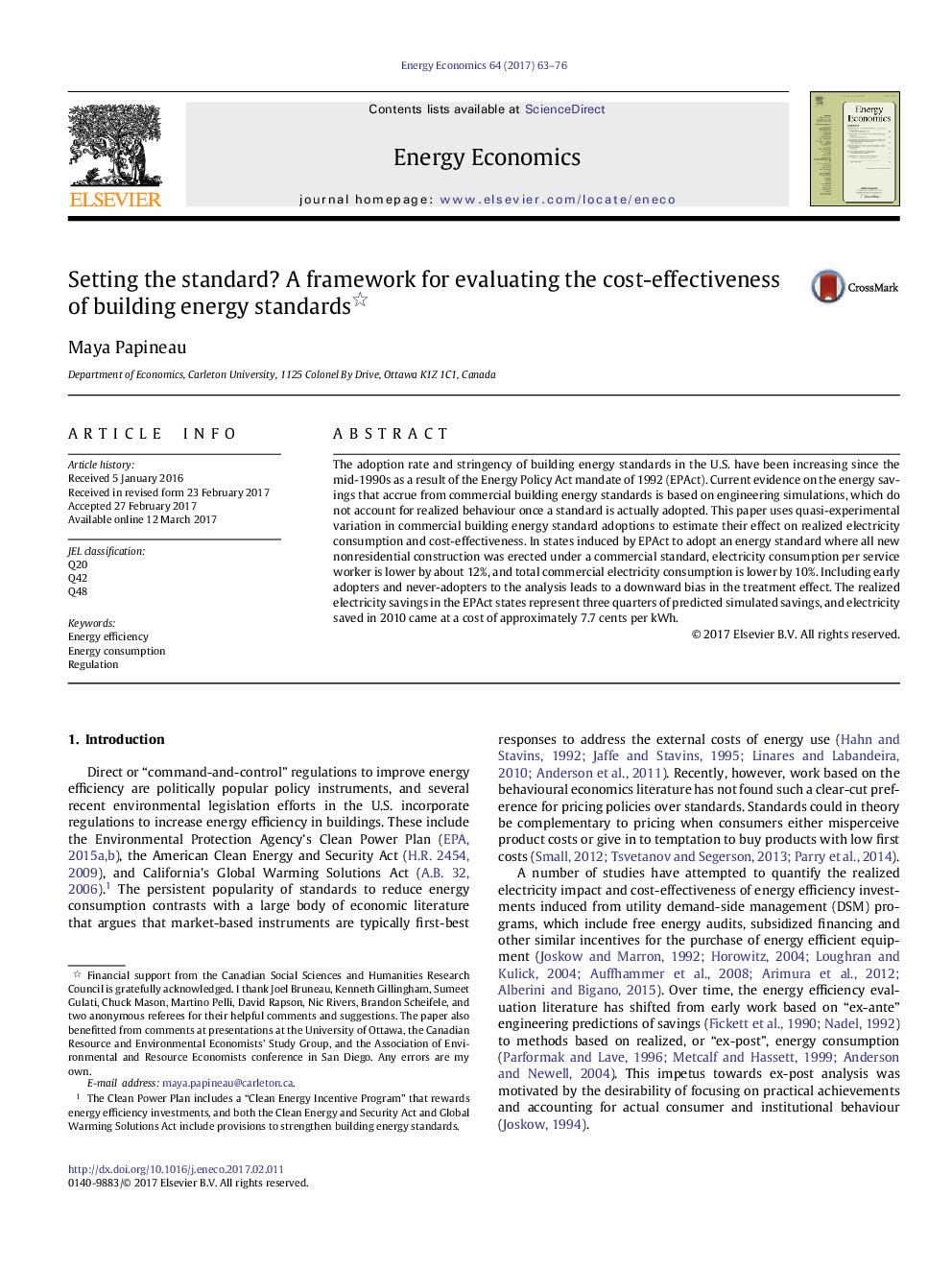| کد مقاله | کد نشریه | سال انتشار | مقاله انگلیسی | نسخه تمام متن |
|---|---|---|---|---|
| 5063668 | 1476700 | 2017 | 14 صفحه PDF | دانلود رایگان |

- Presents a quasi-experimental approach to estimate the effect of commercial building standards on realized electricity consumption.
- Exploits the variation in building energy code stringency in states that complied with the 1992 U.S. Energy Policy Act (EPAct).
- Commercial codes induced electricity consumption per worker savings of 13%, and aggregate electricity consumption savings of 11%.
- Commercial building energy standards cost approximately 7.4Â cents per kWh saved (in 2009 dollars).
The adoption rate and stringency of building energy standards in the U.S. have been increasing since the mid-1990s as a result of the Energy Policy Act mandate of 1992 (EPAct). Current evidence on the energy savings that accrue from commercial building energy standards is based on engineering simulations, which do not account for realized behaviour once a standard is actually adopted. This paper uses quasi-experimental variation in commercial building energy standard adoptions to estimate their effect on realized electricity consumption and cost-effectiveness. In states induced by EPAct to adopt an energy standard where all new nonresidential construction was erected under a commercial standard, electricity consumption per service worker is lower by about 12%, and total commercial electricity consumption is lower by 10%. Including early adopters and never-adopters to the analysis leads to a downward bias in the treatment effect. The realized electricity savings in the EPAct states represent three quarters of predicted simulated savings, and electricity saved in 2010 came at a cost of approximately 7.7 cents per kWh.
Journal: Energy Economics - Volume 64, May 2017, Pages 63-76